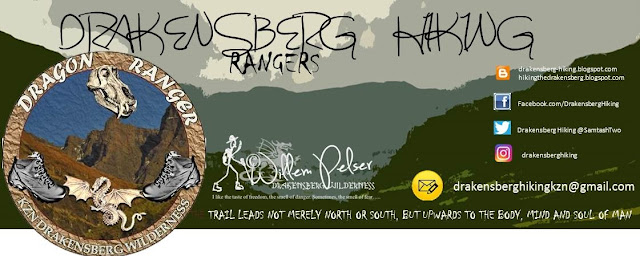“GREAT THINGS ARE EXPERIENCED WHEN MEN, MOUNTAINS AND A WILDERNESS MEET”
UNKNOWN
MAN AND THE CHANGING WORLD
Man is only one of three million species that inhabit this earth, but he already consumes more food than all land mammals put together. During the Stone Age period, the world’s human population consisted of some one million people. It took until 1850 to reach one thousand million. Only 80 years later, in 1930, the world’s human population doubled itself to two thousand million. In 1960 it was estimated at three thousand million and in 1975 it was expected to reach four thousand million, with the probability of eight thousand million by the year 2000.
From the outset man was more intelligent than other living creatures and was therefore able to successfully adapt and overcome the difficulties confronting him. During the Ice Age, man covered himself in skins instead of migrating to warmer climes. He then discovered fire and began to build shelters. From eating berries, fruits and roots, he learned to grow crops and to rear animals for meat, milk, and skins. He started to trade, which led to road systems and eventually the building of ships which connected him with other continents.
With each progression, man has advanced in all fields of life. Industry and scientific advancement have swept ahead without man learning to manage his world and its resources more rationally.
Rivers and lakes have silted up through soil abuse and incorrect farming methods. Usable water is becoming scarcer each day due to silt and pollution: only 1 percent of the earth’s water supply is now of use to man.
Atomic power can be very useful to man, but already man has polluted the earth with radio-active dust. Unwise use of poisoning insecticides resulted in poisoning plants, animals and human beings, too. Factories have spilt their effluents into rivers, lakes, and seas, until they can take no more. We burn coal, paraffin and other fuels which not only pollute the atmosphere but take a long time to replace.
In the early days of the earth, people such as the Red Indians and the Bushmen lived in harmony with their environment; they knew that their lives depended on knowledge of sound ecological concepts. Today, we are only beginning to learn. We cannot treat our planet as if it were limitless in its supply. All sources of energy come to us from the sun via plants. The coal and fuel we burn, the petrol we use, have this energy. We are using these, our natural resources, as if they would never run out, but already we have over-used some of our sources of energy which took millions of years to form.
BEFORE IT IS TOO LATE
The litter problem in the world is enormous. Millions of tons of litter have to be disposed of daily. This involves a tremendous amount of money; also, a large amount of this litter is not recycled and is therefore absolute waste. Charity begins at home, so must we, in our own minds, be pollution and litter conscious. Plastics and bottles, papers and tins, are left by many careless people in our beauty spots, whether it is in mountains or in water. Apart from spoiling our beautiful heritage, these things can become a source of danger.
So litter, water, soil, food and our needs become a personal responsibility, where, with self-discipline, we must learn not only to respect ourselves but our environment too.
There is only one earth and it is not very large; the bio-sphere is even smaller, and what nature has created and developed over millions of years, and which allows our planet to teem with life for our wise use, is rapidly being shattered to such a degree that if we do not do something NOW, it will be too late.
We as hikers, explorers, and adventurers have the absolute duty to respect and protect our Wildernesses. Nobody else will do it for us. Take ownership!
The End.
Safe Hiking.
References and Acknowledgements
From the book – Walk through the Wilderness – C Walker & D Richards
Photos – Willem Pelser
Compiled by Willem Pelser







No comments:
Post a Comment